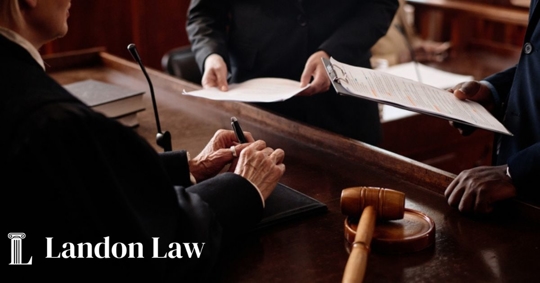Understanding the Role of the Prosecutor in the Expungement Process
Getting a criminal record cleared can feel like trying to push open a locked door. You know freedom is on the other side — the chance for a clean slate, better job prospects, and relief from the shadow of the past — but the path isn’t always clear.
One figure who has a lot more say in this process than many realize? The prosecutor. Their position can make the road to expungement smoother… or far more challenging.
How Prosecutors Evaluate Expungement Requests
Criteria for Expungement
When prosecutors examine an expungement request, they don’t just skim the paperwork. They examine the nature of the offense, the length of time since the conviction, and the person's actions since then.
Non-violent offenses — especially those tied to youth mistakes — may get a better reception. Time matters too. Years without new charges show change. Add to that proof of rehabilitation, like completed treatment programs or community service, and you start building a case worth considering.
Prosecutor’s Discretion
Even with laws setting guidelines, prosecutors have plenty of room to interpret them. Some lean toward second chances; others are stricter. These tendencies can differ widely from county to county, even within the same state.
For someone in Lexington, KY, working with a defense attorney who understands the local prosecutor’s patterns can make a big difference in how the petition is presented.
Interactions with Defense Attorneys and Petitioners
Collaborative Processes
When prosecutors and defense attorneys work together, the odds of success improve. Defense attorneys can help tell the story of who you are now — not just who you were at the time of the offense. They highlight positive changes and back them up with documents, letters, and other proof.
The more prepared you are when interacting with a prosecutor, the better. Solid paperwork, clear evidence of progress, and a respectful approach can go a long way.
Common Challenges and Misunderstandings
It’s easy to get tripped up. Some people assume they qualify for expungement when they don’t, or they underestimate how seriously their offense will be weighed. Others miss deadlines or forget crucial documents.
Keeping in close touch with your attorney and ensuring every step is handled correctly can help avoid delays or denials.
Prosecutorial Impact on Expungement Outcomes
Influence on Legal Outcomes
Prosecutors often act as the gatekeepers in expungement cases. If they support your petition, that can be a huge boost. If they oppose it, you may face an uphill battle — but sometimes they’ll set conditions you can meet for a future opportunity.
Case Dismissals and Record Sealing
Not every prosecutor chooses full expungement. In some cases, they’ll push for record sealing or even dismissal instead. While not the same as completely erasing a record, these steps can still remove major barriers to moving forward.
Legislative and Policy Considerations
State-Specific Laws and Guidelines
Every state has its own expungement rules. In Kentucky, certain offenses are clearly eligible or ineligible, and that shapes how prosecutors approach cases.
Knowing the local law — and how prosecutors interpret it — is critical. That’s where a defense attorney’s insight is worth its weight.
Policy Changes and Advocacy
Laws change. Prosecutors sometimes lead these changes, either pushing for broader access to expungement or resisting it. Public opinion, political priorities, and community needs all play a role.
Being aware of current trends can help you plan the best timing and approach for your petition.
Ethical and Social Implications
Prosecutor’s Ethical Duties
Prosecutors are supposed to balance public safety with fairness and compassion. When reviewing an expungement, they have an ethical duty to consider the whole picture, not just the conviction on paper.
Social Impact and Community Perspectives
Expungement doesn’t just help one person. It can ripple through the community, reducing repeat offenses, opening job opportunities, and strengthening families.
When prosecutors use their discretion to support rehabilitation, they invest in a safer, more stable community.
Take the Next Step Toward a Fresh Start
If you’re in Kentucky and thinking about expungement, you don’t have to figure it out alone. The process is full of rules, timelines, and nuances that can be easy to miss, and the prosecutor’s stance can make or break your case.
The goods news is a reliable attorney can guide you through every step of the expungement process, making sure deadlines are met, paperwork is complete, and your case is presented in the strongest possible way.
At Landon Law, we know how to highlight your rehabilitation, address any concerns a prosecutor may have, and anticipate challenges before they become roadblocks.
Beyond handling the legal details, our skilled team is familiar with the local courts and prosecutors who work there. We can tailor your petition to fit the unique expectations of your Lexington jurisdiction, giving you a better chance at the fresh start you’ve worked hard to earn.
Call (859) 237-7892 today to speak with an attorney at Landon Law who understands how prosecutors think and how to present your case in the best possible light. The second chance you deserve is worth fighting for.

